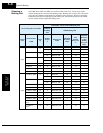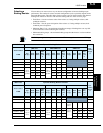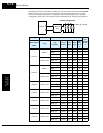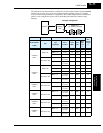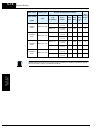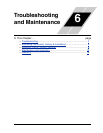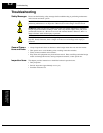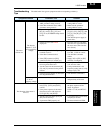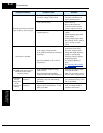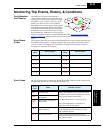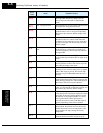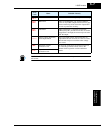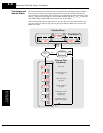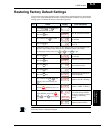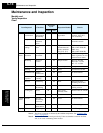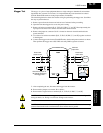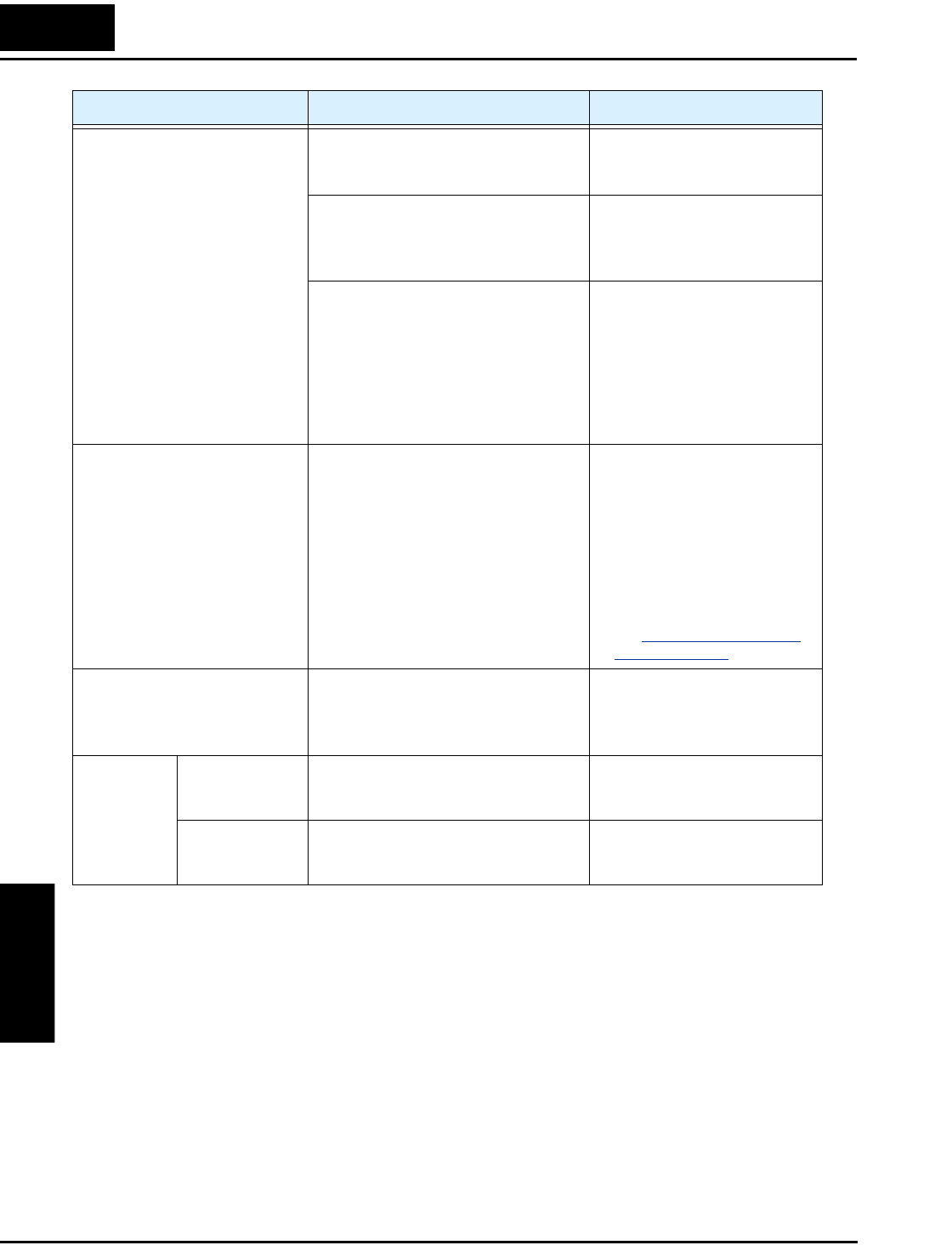
Troubleshooting
Troubleshooting
and Maintenance
6–4
The motor speed will not reach the
target frequency (desired speed).
• If using the analog input, is there
current or voltage at [O] or [OI]?
• Check the wiring.
• Check the potentiometer or
signal generating device.
• Is the load too heavy? • Reduce the load.
• Heavy loads activate the
overload restriction feature
(reduces output as needed).
• Is the inverter internally limiting the
output frequency?
• Check max frequency setting
(A004)
• Check frequency upper limit
setting (A061)
• If using analog inputs, check
their settings (A101– A104) or
(A111–A114), or (A011–
A014)
The rotation is unstable.
• Is the load fluctuation too great?
• Is the supply voltage unstable?
• Is the problem occurring at a particular
frequency?
• Does the instability occur at various
frequencies?
• Increase the motor capacity
(both inverter and motor).
• Fix power supply problem.
• Change the output frequency
slightly, or use the jump
frequency setting to skip the
problem frequency.
• Try adjusting H006 up or
down.
• See “
Adjusting Motor Stabil-
ity” on page 4–57.
The RPM of the motor does not
match the inverter output
frequency setting.
• Is the maximum frequency setting
A004 correct?
• Does the monitor function D001
display the expected output frequency?
• Verify the V/F settings match
motor specifications.
• Make sure all scaling (such as
A011 to A014) is properly set.
A parameter
will not
change after
an edit
(reverts to old
setting).
True for certain
parameters
• Is the inverter in Run Mode? Some
parameters cannot be edited during
Run Mode.
• Put inverter in Stop Mode
(press the Stop/reset key). Then
edit the parameter.
True for all
parameters
• If you’re using the [SFT] intelligent
input (software lock function)—is the
[SFT] input ON?
• Change the state of the SFT
input, and check the B031
parameter (SFT mode).
Symptom/condition Probable Cause Solution



